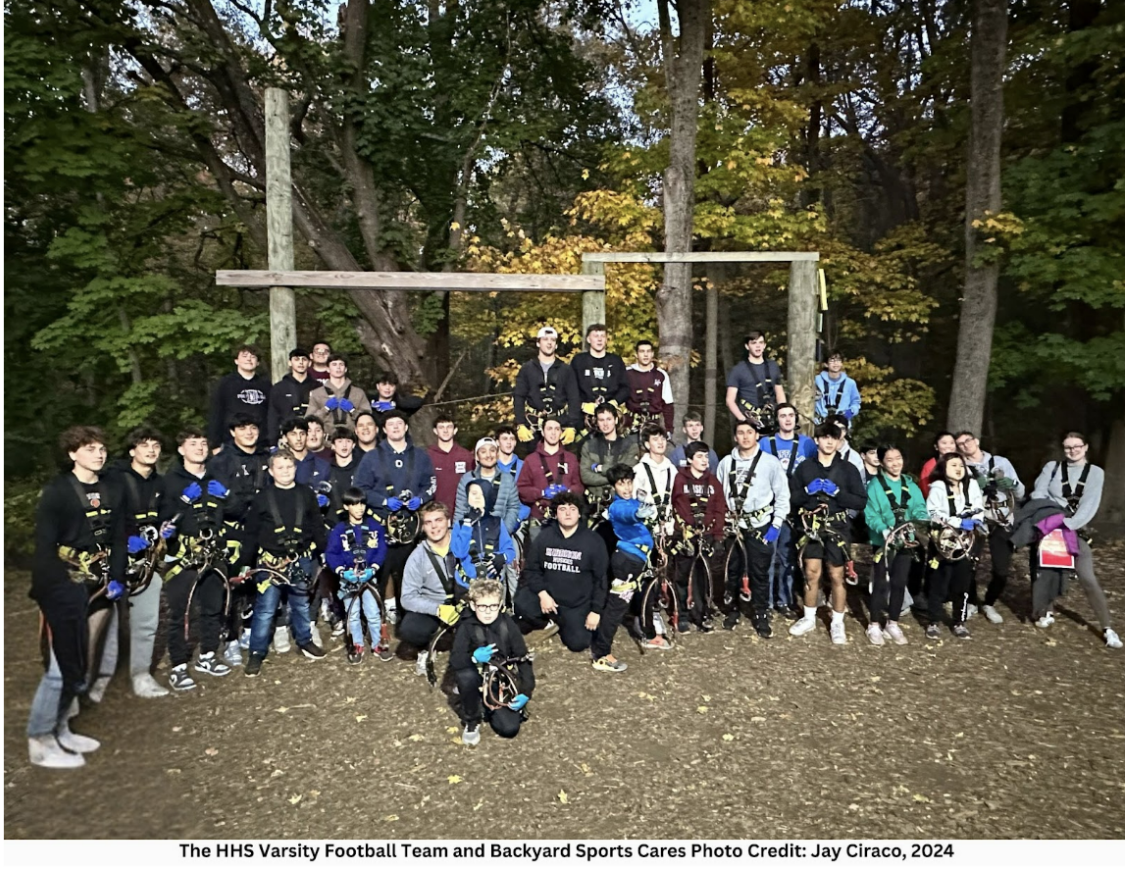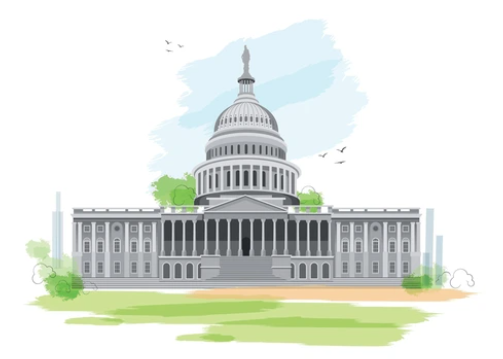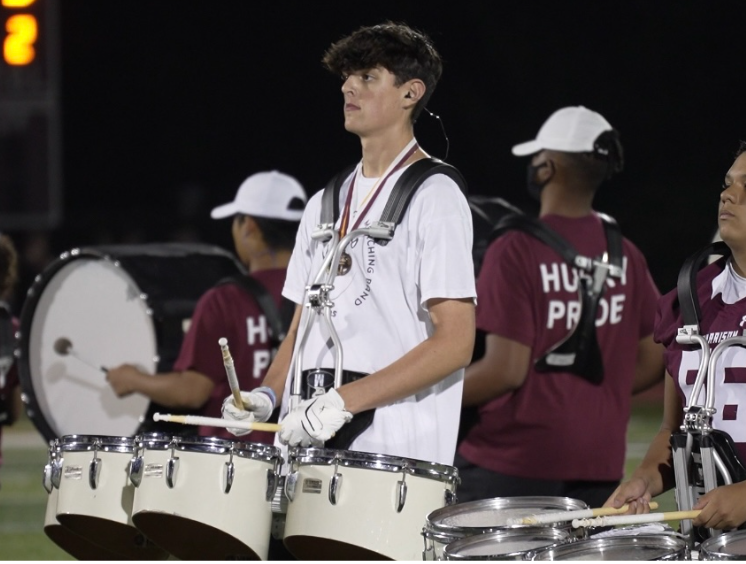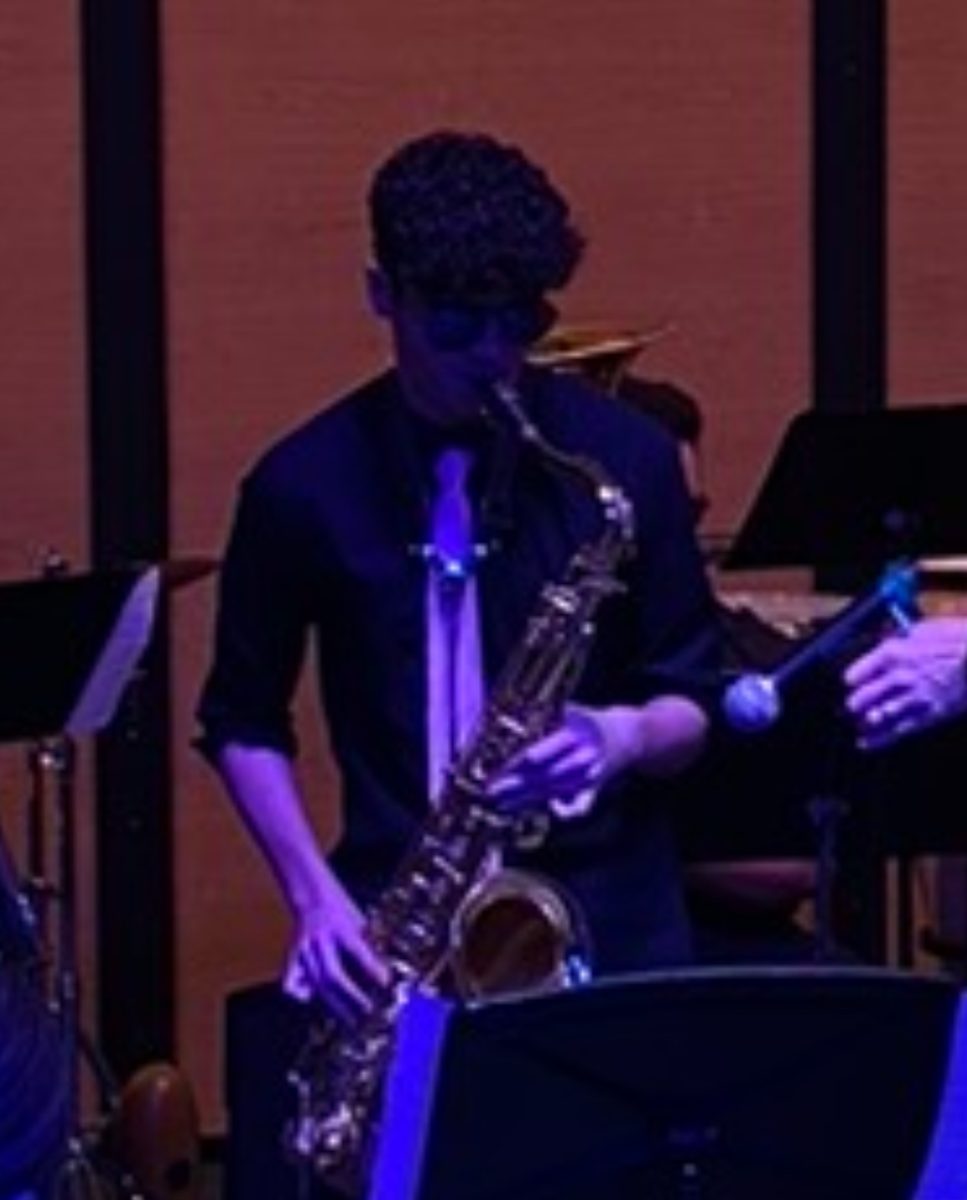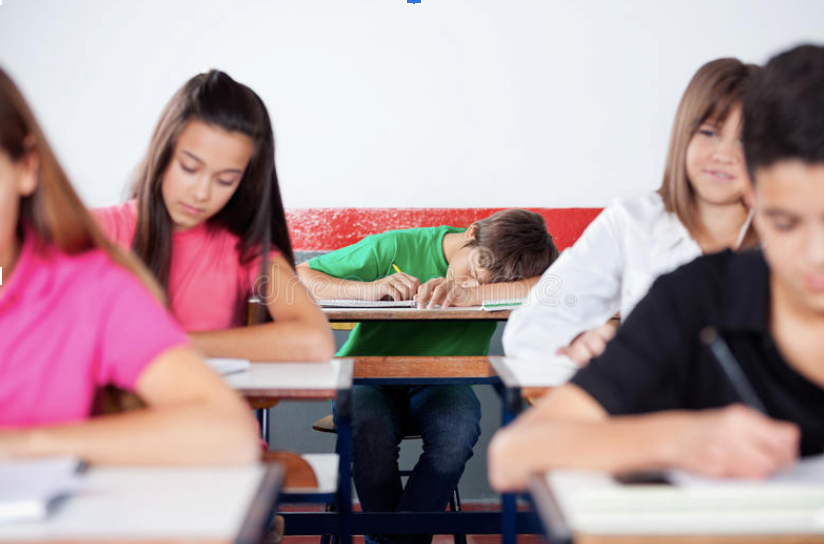Why Does School Start So Early?
February 13, 2023
What if there was a way to improve student’s grades by 4.5%, a way to improve the mental health, energy, and efficiency of students in schools across our region? According to the American Sleep Academy Of Medicine, schools should start no earlier than 8:30 AM in order to increase the likelihood that students are getting the recommended 8-10 hours of sleep. Doing this can help them to avoid being overweight, depressed, and have other negative side effects such as poor academic performance.
With these facts being known we may ask ourselves, why do our high schools start so early in the morning? The majority of high school students have an abundance of work and tests to study for, many play sports with practices that run late in the evening, or even have jobs that make it so they can’t get home until a later hour as well. In a recent conversation with a Junior at Harrison High School Braiden Sottile, he mentioned that his club Soccer practices run from 8-10 PM multiple times a week. They sometimes even run late, causing him to get home at 10:30 or even 10:45 PM some nights. Even if a student were to get home and go to sleep right away, many have to catch a bus around 7:00 AM or leave by 7:30, still causing them to fall way below the recommended number of hours. However, it remains completely unrealistic for kids who get home at a time like 10:30 to get enough sleep as they may have to shower, eat dinner, finish up homework and most of all enjoy some time to themselves. “Sometimes I just need time to be a person, you know,” said Braiden.
Regardless of the logistics it simply shouldn’t be this hard for students to do what they want to do after a long school day and still get a sufficient amount of sleep. According to the CDC, 93% of high schools and 83% of middle schools start before 8:30 AM. Why is this?
Issue #1: Bussing
In an article titled “How to Make School Start Later” by Danielle Dreilinger at eductionnext.org, one of the few schools that succeeded in pushing their start time back was Boston Public Schools in 2017. They pushed their start time to 8:15 AM, swapping it with the elementary schools and making their new time 7:15 AM, which was necessary in order to have sufficient bussing for the district. This decision received major backlash from parents in the area causing the Superintendent of Boston Public Schools, Tommy Chang, to quickly rescind the decision eventually leading to his departure from the job as well. Parents were concerned with young elementary school kids aged 5-12 waiting for buses early in the morning while it was dark. They were also concerned with low-income families’ financial ability to now tack on before-school care in addition to after-school care for their young children while they are working. It also brought up issues because many families relied on an older sibling to watch their younger sibling after school; however if the younger sibling’s school now ends earlier than the older siblings this is impossible.
In light of all of these issues in a recent conversation with the Superintendent of Harrison Central School District Dr. Wool, he expressed that having to swap these start times is not only an “equity issue”. In terms of certain families being inflicted with the issue of extra child care and a radical change that would impact their life, the district would likely receive the same backlash families gave in Boston because it is a major financial one. “We spend about 6-7 million dollars a year on our bussing contract,” he said. “In order to do this without changing any times. I would need to increase the amount we spend on bussing exponentially. Because our school buses are shared between middle school, high school, and elementary schools, and all of those routes are separated…I would need to add a whole new fleet of buses.”
Wool said that this extra amount of money spent would most likely be so much that it would require the district to let go of some employees as well as get rid of certain programs in order to have enough money to fulfill this new fleet of buses.
The catastrophe of keeping all three schools in the district’s start times the same and spending a sufficient amount on bussing is a large issue and one that will be hard to work around.
Issue #2: After-School Sports and Activities
Harrison’s athletic department falls into a section of various schools in the Westchester County area titled “Section 1” in which they can potentially be matched up against for competition. Because of this section, it was found that altering the start times from the places they are already in didn’t work due to there not being a sufficient amount of time in between when school ends and the time it takes to transport one team to another school, depending on the distance.
Dr. Wool continued to say that “all of Section 1 athletics would have to agree to these terms,” something that could take years to come to negotiate.
The Solution:
When putting this all together it is clear that making a change like this would benefit the life of the student body at Harrison High School greatly. Changing this time to 8:30 as recommended by many would allow many to add almost an hour of sleep every night. But, evidently making this change is almost impossible, right?
One may think so, but as the conversation with Dr. Wool continued he revealed a small path that could open up this possibility. “I’d like to do it but I haven’t been able to find either a financial way to support it or most importantly a regional way” he stated referring to the issues of having to add a new fleet of busses to our district’s agreement and the necessity for all Section1 athletics to agree with this change.
“The best way that this could happen,” Dr. Wool continued “and I’ve advocated for this is: if the state legislature could adopt a standardized start and end time for high schools because then that would force all of the athletics across the state of New York to operate on the same schedule… everyone would operate on the same clock and that would be very helpful.”
Wool also went on to explain that this would assist the district’s bussing issues as well. Yes, there may be some financial ramifications including having to ask the taxpayer to pay more, or even having to reduce the number of employees in schools.While these outcomes aren’t the best, if this were the case they would no longer receive backlash from the taxpayers because these ramifications are universal and there is essentially nothing the district can do about it but move the start times.
This backlash may cause them to have to overturn this potential decision to start schools later and fall into the same trap that Boston Public Schools did in 2017. Doing a lot of hard work for nothing and failing due to the opinions of the public, demonstrates that often the pros of starting school later outweigh the cons!
“I agree with what the state of California is doing,” the health teacher at Harrison High School said. “Starting next fall no public high school or middle school in California is allowed to start before 8:30 AM in order to receive state funding.”
A resolution like this would clearly be most optimal for all parties involved but the question then becomes how do we get there. Mrs. Zanot continued to explain that our best shot at this would come if “instead of ideas coming from one or two students advocating for the change it would be nice to have a large group effort. This would mean the involvement of students, teachers, administrators, and most importantly parents!”
Dr. Wool even admitted that this change would “absolutely” be worth it “There are ways to do it but I would just need people to take it more seriously.” said Wool.
He continued to explain that it all comes down to excitement. If enough people are willing to put in the work to make a change like this it can happen. Issues will present themselves and tiny logistics will have to be figured out, but this can most definitely be done if enough credible people were able to present the issue to state legislation, and find someone to sponsor the idea. That is our best shot at changing this issue for the youth.

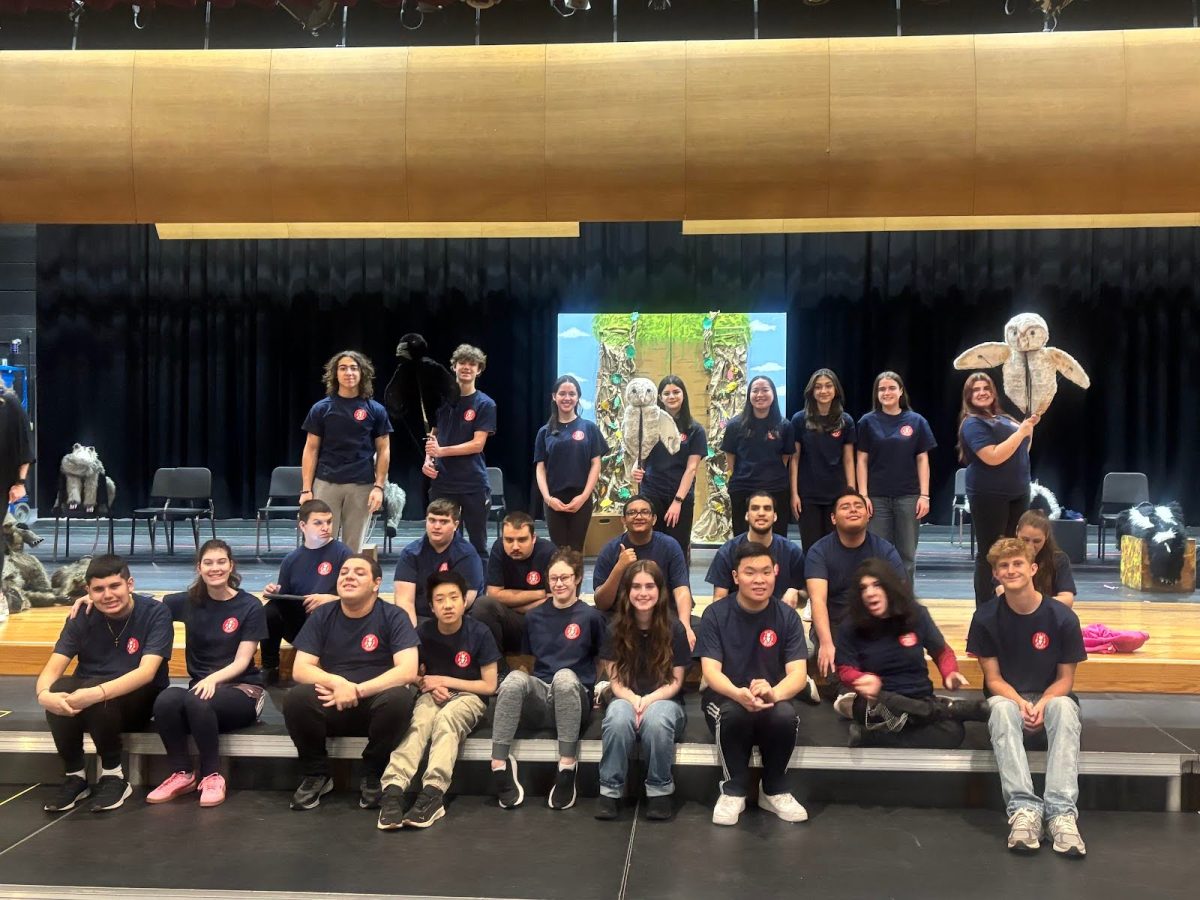


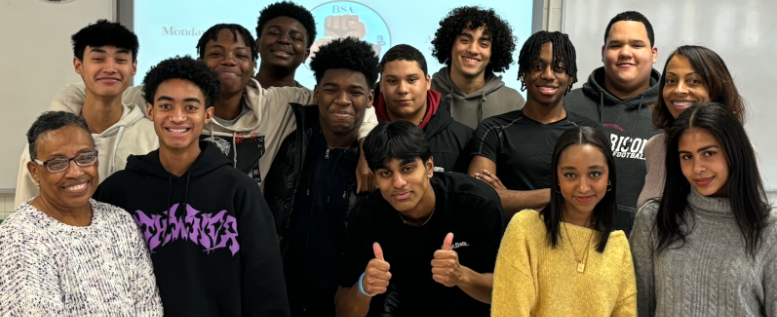

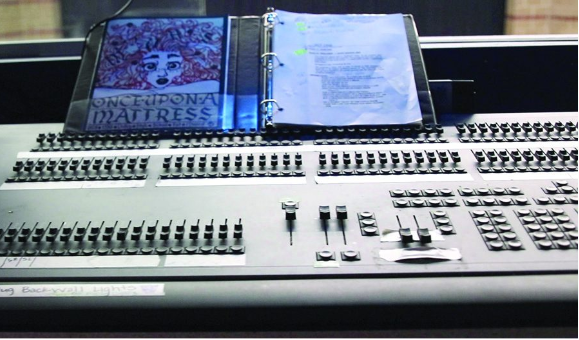
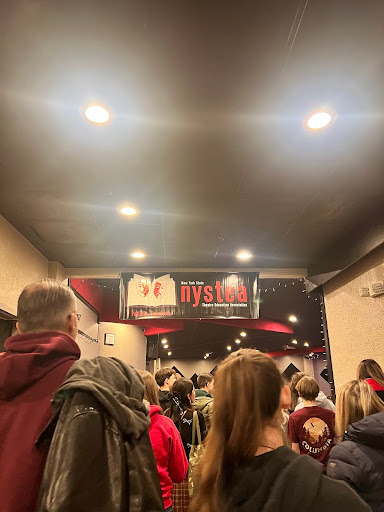
![[From left to right-Top row: Harison Fliegenspan, Talia Russo, Isis Leite, Micaela Thone, Rosella Paniccia. Bottom row: Maya Rolan, Eren Yoshimura, Audrey Cheung, Karinah Diaz]](https://thehuskyherald.org/wp-content/uploads/2025/02/IMG_0927.jpg)

